|
|
Post by ASGetty ((Zovo)) on Jun 30, 2012 5:36:09 GMT -5
Immortality in Stone 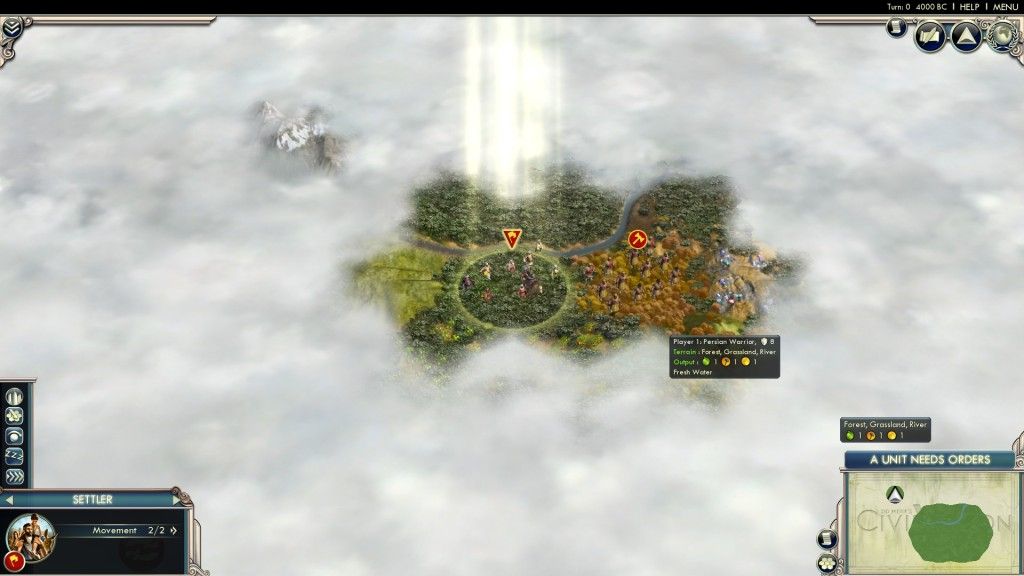 I I was but a child when my people set off from the safety of their caves into the savage wilderness. The land beyond our dark, dank dwellings was vast, unexplored and dangerous. Like seeds in the light of spring's sun, we knew not our destination, only the uncompromising desire to rise from the earth and mud and be greater than we were. As I said, I was but a child, but I too felt the pull of unseen world. Never could my mind have fathomed that which lay ahead. The year was 4,000BC. 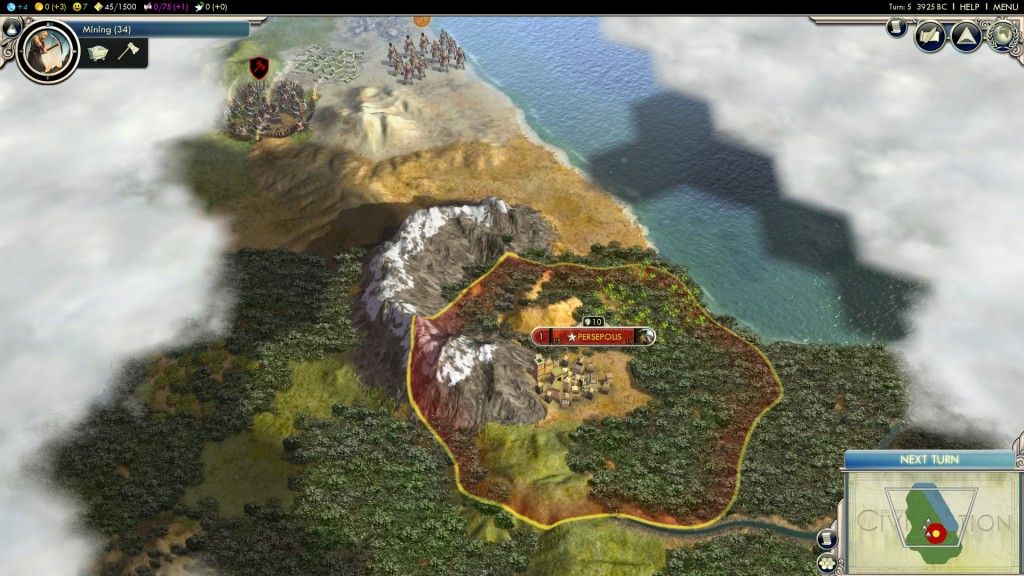 F Forty-five years we wandered in the wilderness. Scorching sun blistered our weary bodies, bitter cold and rain wilted our spirits. We followed a man called Darius, he was strong of body and his spirit irrepressable. He led through ancient forests in which wolves stalked our path, dense jungles swarming with stinging insects and choked with poison plantlife, stinking marshlands rife with decay and death; and his vision never faltered. I grew close to Darius, I gained his confidence his respect. I watched him grow older, weary. His spirit never wavered, but his aims grew more domestic. We encountered the remnants of peoples ancient even to us even then. Ruins littlered the landscape and wandering barbarian tribes plagued our footsteps day in and day out. We looted the ruins for whatever spoils we might unearth, we fought the barbarians for food and land. Eventually, we settled into the hip of a small mountain range; we called our new home Persepolis. Below our foothill settlement grew dense jungles containing fruit and game. The ocean, in its eternal expanse, could be seen from the higher points of our village. The mountains, which we called the Cradle, to the west and north shielded us from the worst of the barbarian raiders. I wonder now what these people may have known, these barbarians. What might we have learned from these fragments of ancient days? Were my own people once patrons of these ruined cities? Fled to the caves and tunnels beneath the earth for reasons long forgotten? Might these wandering tribes have known the answers to question I only now possess the wisdom to ask? 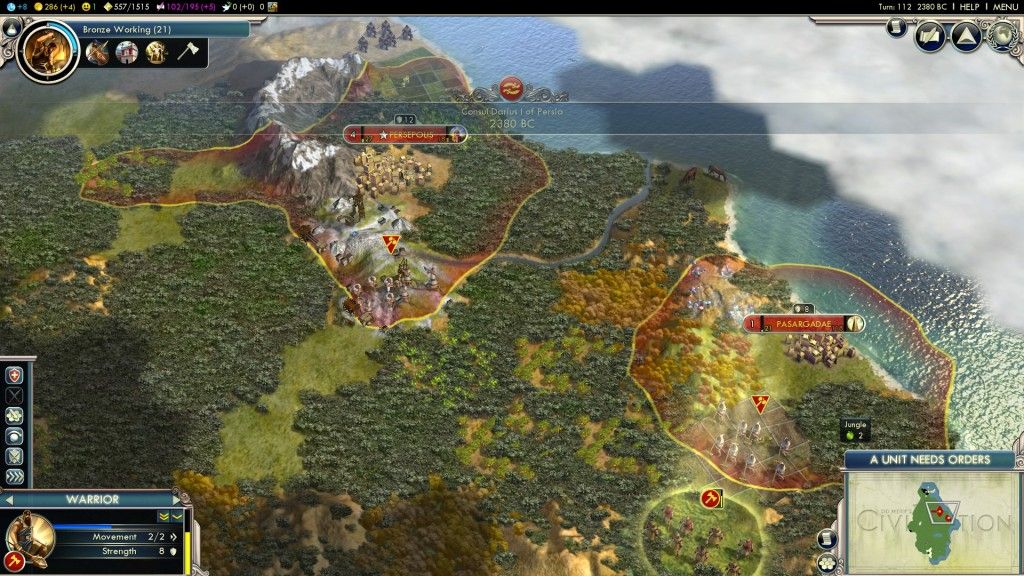 P Persepolis grew quickly. Our people thrived in their new home. To facilitate this growth we turned to skills we knew. We dove into the nearby foothills and mined stone for building homes and monuments. Where the flatlands began, at the juncture between craggy peak and endless ocean, where the summer thaw brings run-off from the Cradle in abundance on it's path to the coast, in this fertile land we farmed. Of other civilized peoples, we saw nothing; though the barbarians were a constant threat. Their numbers so great I now have to assume we had choosen to begin our great project among the skeleton of their own failed efforts. Warbands set out from the city some to seek glory against these savages, others to seek out precious gems; a luxury rarely encountered among our own mines and highly regarded among the people of Persepolis. Some brought home vast plunder; others brought home the corpses of the fallen. One warband located a rich source of gemstones to the south east, not far, in fact from our ancestral caves. After chasing out the resident savages, settlers established a second city. Another such band journeyed far to the south. In a particularly bloody encounter with a southern tribe, our people rescued a group of foreign settlers. Not knowing whence they came, and not speaking their language, these settlers were brought back to Persepolis where they agreed to work in exchange for their our protection. The one among them who negotiated this alliance called himself Zovo; he was different from the rest. A sort of spiritual leader to this ragtag group, his body was old, his beard long and grey, but in his eyes burned a wild fire and his mind was chisel-sharp. As a diplomat this Zovo inserted himself into Darius' council. He convinced our aging leader to build a shrine within the confines of Persepolis where his people could practice their own beliefs in private. The city continued to grow, and with it the need for food. Foraging among the jungle would no longer suffice to meet the needs of a hungry populace. Once more this strange foreigner spoke up with a solution. His people, he said, were familiar with the ways of the jungle. And, he stated, the solution to our quandry lay within the very mines which we dug out with our own hands. He spoke of metal; material harder and more refined than the stone tools we were using. A material which would allow us to tame the strangling vines and dense undergrowth of the jungle. We began to work bronze. By this time Darius had grown old, then venerable, and ancient. I, too, had aged considerably. Though neither of us spoke of it, we both knew this mystic from the south had something to do with it. 1,500 years passed between the founding of Persepolis and Pasargadae. Neither Darius nor I could explain our longevity, but we both knew that whomever this strange foreigner really was, he had plans for us and our people. Darius recognized this immediately and, being possessed of ambitions which far outweighed the lifetime of mortal men, threw his support behind Zovo in effort to remain in his favor. A second shrine was constructed in Pasargadae, and with it the mystic Zovo enlisted a group of specialized warriors, warriors of his own creed, to protect the secrets of his people. He called them, appropriately enough, the Immortals. With this developement, happiness among the city folk fell. Truly their hearts were disquieted enough living under the rule of a man who did not age, for what madness must possess a man who has no reason to fear? What tribulations might such a mind bring upon its people? Thus far Darius had remained stoicly docile, though a certain tension amoung the populace said that they knew it could not last. Then the establishment of these Immortals specifically to guard the shrines. Many hearts turned toward dissent. 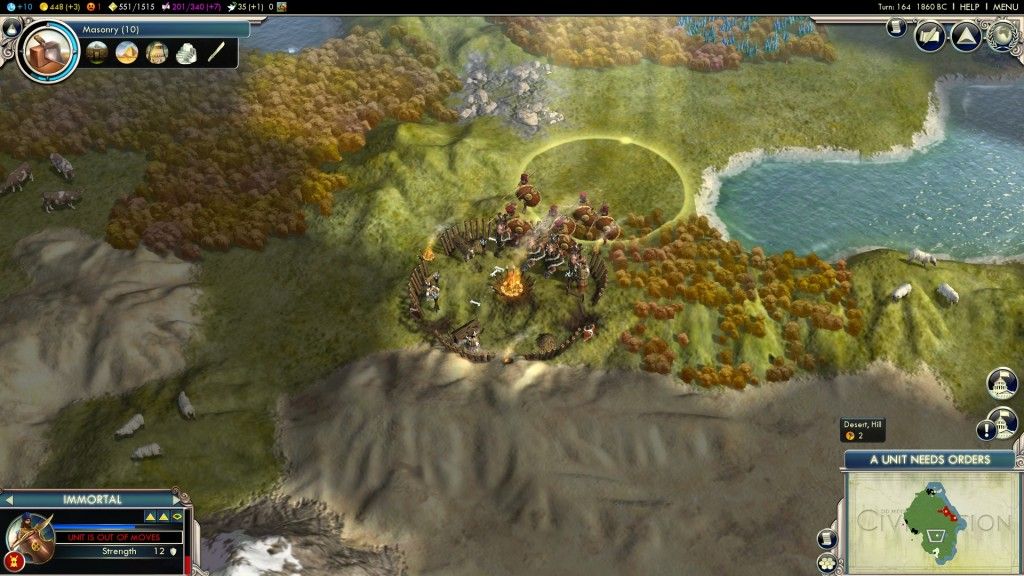 S Seemingly sensing this unrest, Zovo met with Darius and set a new policy among the citys. Bountys we placed on the heads of any and all barbarians, and Zovo set his Immortals into the wilderness to eradicate this menace. It was not long before bags and boxes arrived in Persepolis bearing the severed heads of barbarians from throught the known land. The peoples distrust of the Immortals dissolved a little with each threat removed. Zovo himself, though, took on the project with a fury that spoke of personal grudge. As mysterious as he is seemingly benevolent, I cannot help but think Zovo was removing these savages for his own reasons. Perhaps they knew something we could not see? 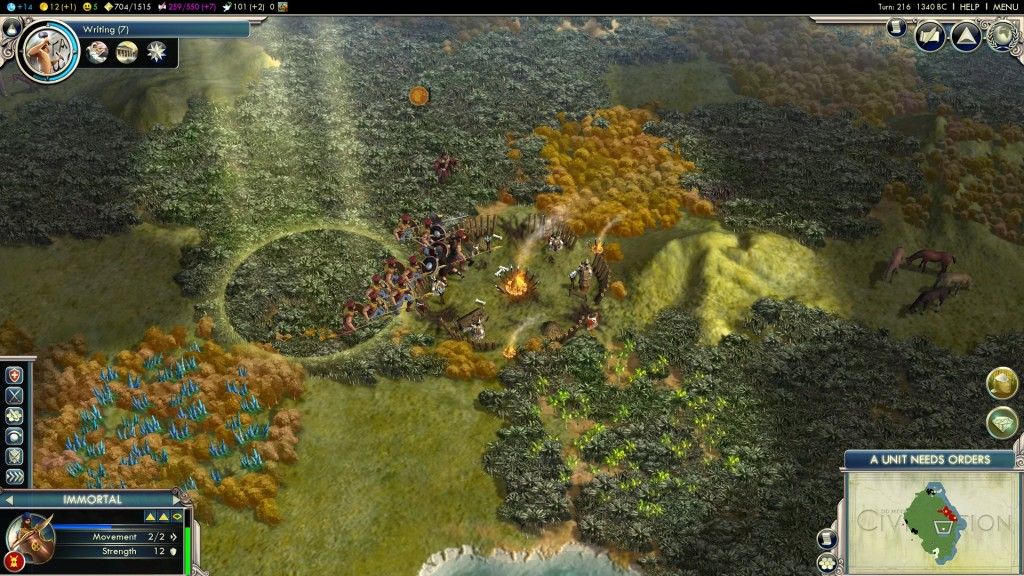 Alas, in ignorance is bliss. The rumor that the Immortal's title was something more than a name spread like wildfire, and people flocked to their shrines in hopes of learning their secrets. Surprisingly Zovo welcomed them and taught them and, when a group of immortals returned home with another rescued group of workers from the south, declared the construction of a great monument. A testament to the gods, he called it. A trial of sorts. Could we, our people, complete this great task and gain the gods favor? Might doing so bring immortality among us all? The implications were too great to ignore. In 1320 BC, production began on a stone monument to rival the very peaks of the Cradle. A mountain of stone, a symbol of our people's endurance and persistance. Darius knew nothing of this proclimation until the project was already underway. 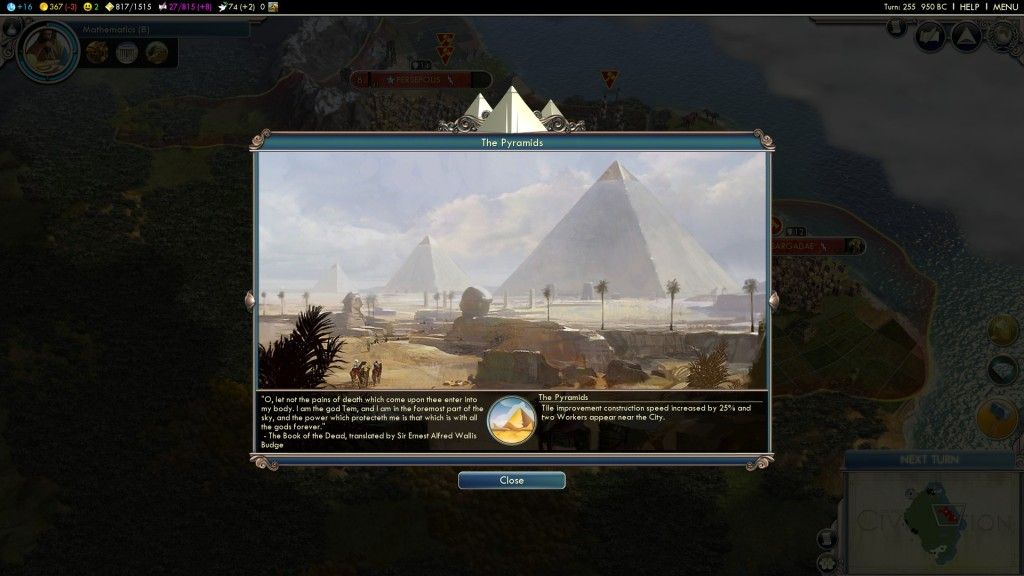 F For four hundred years our people labored under the guidance of this mystic from the south. Their devotion to him growing while his Immortals swept across the wilderness like a storm, utterly decimating the barbarian tribes. Far to the south the Immortals encountered another civilization; a people calling themselves the Ottomans. Speculation held that perhaps these were Zovo's native people, though he bore little resemblance and showed even less loyalty. Finally, one day, the project was complete; the glorious golden capstone placed and our Great Pyramid gleamed like a second sun shining it's life giving warmth over our people. Zovo declared a great festival, and his support among the people continued to grow. Darius, our immortal leader, who truly led our people out of the darkness and into the sunlight, began to fade into the background. When problems arose, the masses who once turned to their leader, turned instead to their faith for answers. Myself, and those few elders who remembered past times, remained loyal to Darius, and discomforted by the growing factionalism. Darius, himself, could be seen occassionally muttering his regrets at his empathy in allowing that group of workers to live among his people oh, so long ago. Piety, and maintaining the favor of Zovo's elusive gods became the dominant priority among the cities. 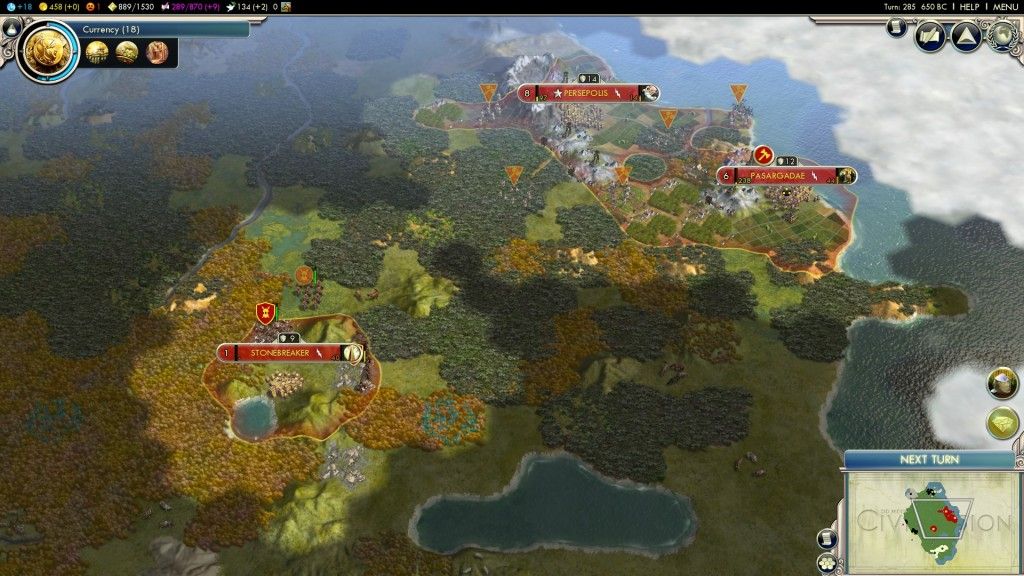 I It was not long before our fears became manifest. Our twin cities continued to thrive, jungles were clearcut to make room for farms, roads were constructed and a route for trade established through between our cities, wealth and jewels spread among the populace. A second great project was begun in Parsagadae, a project to rival our Pyramid; another symbol of immortality in stone. Zovo's people kept the dtails secret, wishing to unveil it in completetion, though sculptors and potters from throughout the cities were recruited and paid handsomely for their efforts. Then, one day, a request appeared before my lord Darius. A lone Immortal stood before his throne and asked that he commission the construction of a road. A road to where? My lord asked. To the south west, to Stonebreaker Hold, the Immortal replied. He explained further that, in their time in the wilderness, the Immortal had located a small lake surrounded by resources valuable to the empire. They had settled a fronteir camp which, in time became a base of operations for the Immortals and their scouts, and eventually a city in it's own right. It was called Stonebreaker Hold on account of it's rich supplies of quarryable stone, and the Immortals requested a road by which to transport this resource back to the twin citys. Darius was shocked that such a place could exist. Projects had been commissioned in his cities without his permission, religion was taking shape among his people without his involvement, and now an entire city had grown among his empire completely outside of his knowledge. Worse still, none of these things were without wisdom or merit; reluctantly Darius approved appeal and construction on a trade route to the oddly named Stonebreaker Hold began in earnest. Once again, Darius spent the evening cursing his dwindling control and this southern "prophet" as the people had come to call him. I could see schemes turning in Darius' mind and feared the worst was soon to come. |
|
|
|
Post by ASGetty ((Zovo)) on Jul 4, 2012 4:24:40 GMT -5
Years passed and the road to Stonebreaker Hold continued to grow. I was there the day the road crews crested the final hill and saw the outpost for the first time. In size and scope it rivalled, already, Parsagadae surrounded on all sides by dusty mines and lumber mills the streets were choked with soldierly baracks housing the fanatic Immortals. There was more at work in this city than we had been led to believe. Martial training was pursued day and night, seige weapons were being constructed, weapons sharped, armor mended; Zovo had warfare on his mind. It was about this time, back in Pasagadae that Zovo revealed his most recent great undertaking. He took Lord Darius to the site of his construct and down inside a faux palace, half buried beneath the earth. Here he revealed his Terracota Army. 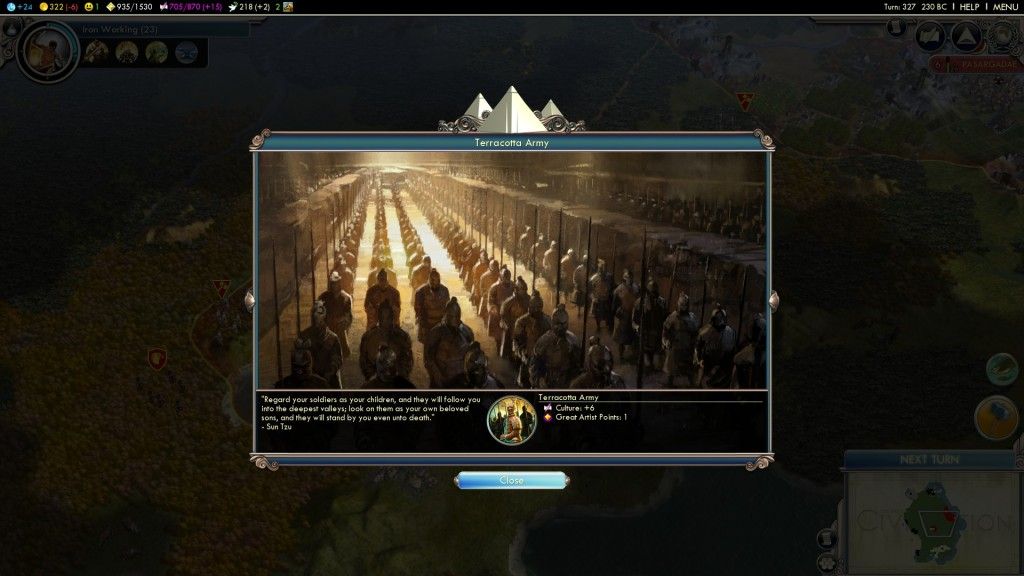 D Darius stood, mouth agape at the wonder before him unsure what to make of this. Eventually his brow furrowed and a frown dominated his face. What use is this? My lord demanded of the priest. Why have you wasted the cities time and money on such a frivolous project? Zovo did not balk in the face of my lord's wrath but replied simply; It is a gift, my lord, a gratitude. You have given me my Immortals, and now I present you with your own. Darius was not satisfied; They are made of clay! He said; Of what use are these to me? A great king must possess a great tomb. Zovo replied, and left my lord there to ponder his words. Lord Darius was not pleased. Upon leaving the tomb he called upon his master metallurgist to commission a project of his own. He called upon a scout to engage in a matter of utmost secrecy. Tired was my lord of existing merely as a figurehead while this mad prophet from the south coaxed and coerced his people against him. No, he would show the people that Darius still held the reigns of this kingdom. After delivering his less than subtle threat, Zovo retreated to Stonebreaker hold. Months later word arrived in the capital that war had broken out in the south. Zovo had marched against the Ottomans. The council, myself included, were dumbstruck by the audacity of this man. My lord Darius only smiled. 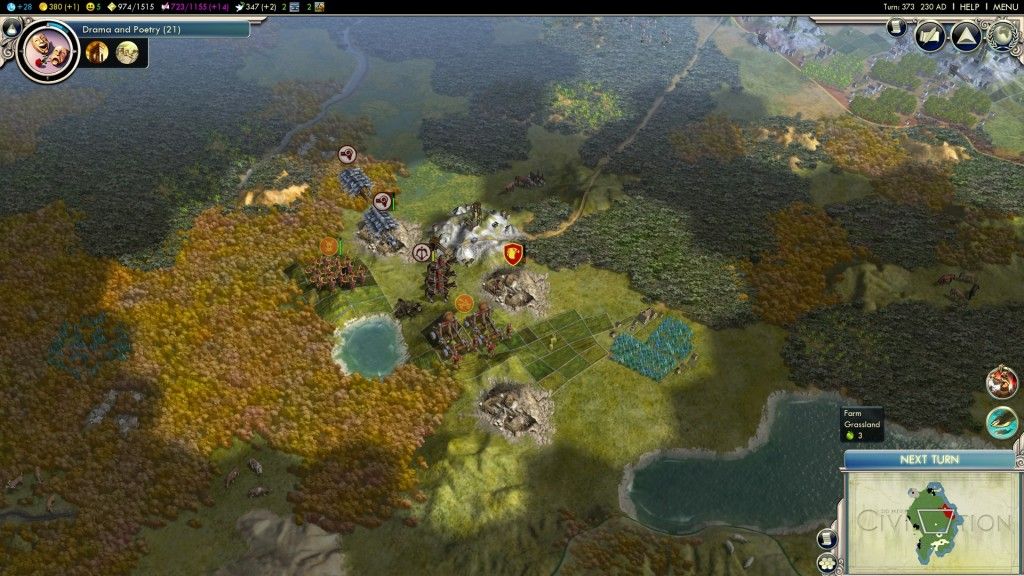 I In 230AD, the reason for that smile became evident. Stonebreaker Hold had been raised to the ground by the marauding Huns of the north whilst Zovo and his Immortals were embroiled in conflict with the Ottomans. Never will I cease to be surprised by the fickleness of the masses. Support for the religious leader plummetted. The money and resources having been carried south to fuel the growth of Stonebreaker Hold was now held in foreign hands! All these years had come to naught, and Zovo's infantile faith began to collapse in upon itself. There were riots in Pesepolis and Pasargadae centered around the places of worship. Zovo dared not return to the city alone and so marched through the capital gates with the remnants of his Immortals; humbled and shamed. Welcome! My lord Darius greated the mystic loudly and embraced him sympathetically; I understand you have encountered some difficulty with our neighbors. Zovo did not speak. Darius raised his voice louder still so that all might hear his words. I have met with the leader of the Huns, this Attila. We have negotiated an accord and he shall assail your people no longer. Once again, I, Darius do place you, my friend, under my protecting wing. Come with me to Pasargadae, I too, have been constructing something I wish to show you. As the two left the capital, rumors swirled on the streets. A number scouts had recently returned from Hunnic lands and their stories strongly suggested that the Hunnic attack, when Stonebreaker Hold was most vulnerable, was no coincidence and that this easy truce was not recent development. Darius would never again speak of this.  U Upon arriving in Pasargadae Darius introduced Zovo to his new royal guard. A group of twenty men, heavily armored in iron, with weapons of the same sturdy metal. One could almost see, by the look on Zovo's face, the dismay as he mentally stood his Immortals against the men before him. My Lord Darius had certainly been busy in his absence. Escorted by this formidable force, Darius led the mystic to the feet of his grand monument. A mightly iron Collossus stood on the banks of the sea, 70 feet tall it's great legs stood one foot on land, the other in the sea. It stood with it's back turned to the Terracotta Army, as though leading them forward, it's great hulking shadow completely engulfing the clay soldiers in darkness. You see! Darius said to Zovo; A great army, must have a great general. Zovo said nothing. Great efforts were made to quell the unrest cuased by the loss of Stonebreaker Hold. Zovo, suitably shamed, took a less active role in civil affairs and concentrated on rebuilding his dwindling flock. Slowly, over time, the Immortals, too, were rebuilt. Then, one day, my Lord Darius went to Zovo at his temple and set before him a task. That task was to re-establish our nations holdings in the south. To rebuild upon the ashes of Stonebreaker Hold, and reclaim the mines which sit unworked, the mills going to rot, and the farms gone to seed. There was no reason for the two men, both leaders in their own right, to work against one another; a people need faith, but a nation cannot subsist on faith alone. 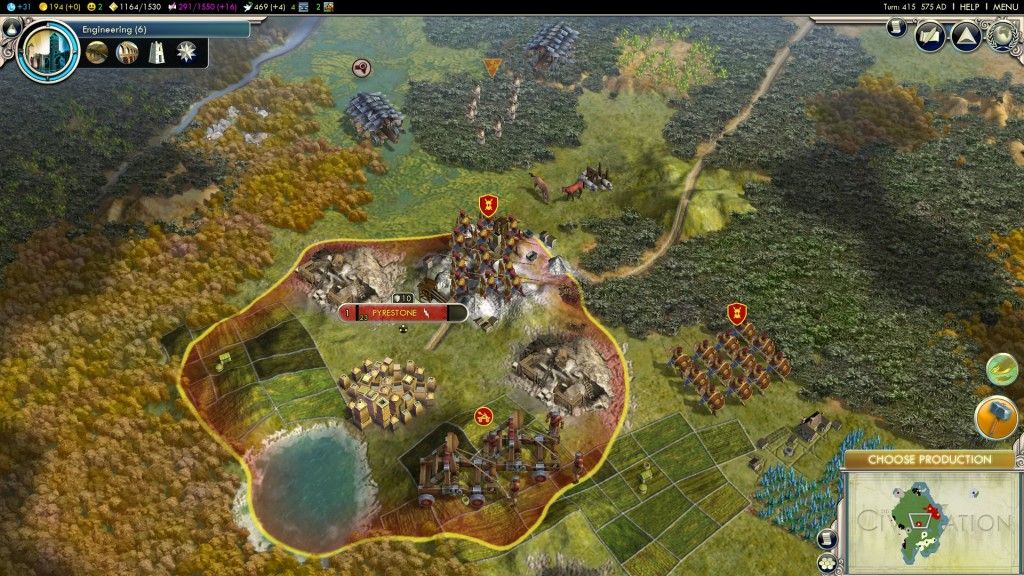 L Later that same year, Pyrestone was founded, as a monument and memorial to those men and women killed in the assault on Stonebreaker Hold; and a tribute to an alliance of minds guiding our civilization forward. The man Zovo was named Great Prophet and the tenants of his religion, Zovoastrianism, were outlined in holy scripture and carved into the walls of the newly constructed temple in Pyrestone. 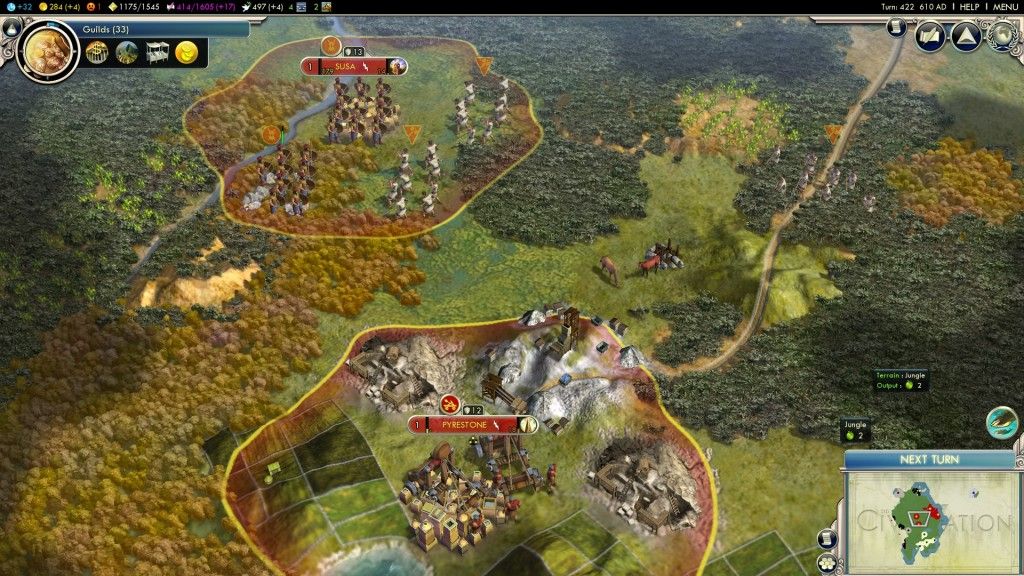 L Let no man say that my Lord Darius is a fool, though. Under the guise of providing additional protection from the Huns in the north, my Lord Darius had constructed yet another settlement, Susa, to the north west of Pyrestone populated with staunch loyalists and close enough for frequent travel between there and the wayward outpost. No temples would be constructed in Susa, and never again would Zovo act without the knowledge of my leige and lord. |
|
|
|
Post by ASGetty ((Zovo)) on Jul 7, 2012 15:56:49 GMT -5
The renewed cooperation between my lord and the prophet Zovo brought grand times for our people. Utilising the resources gathered at Pyrestone, Darius commissioned a grand project among the peaks of the Cradle. A tribute and testament to the partnership and trade between cities. Merchants and travellers from far away lands came to see this wonderous creation. Trade and diplomacy, with lands unknown to us just a few years prior, blossomed. Spain, Mongolia, Russia to name a few each sent envoys with goods to trade; exotic wares from over the seas. 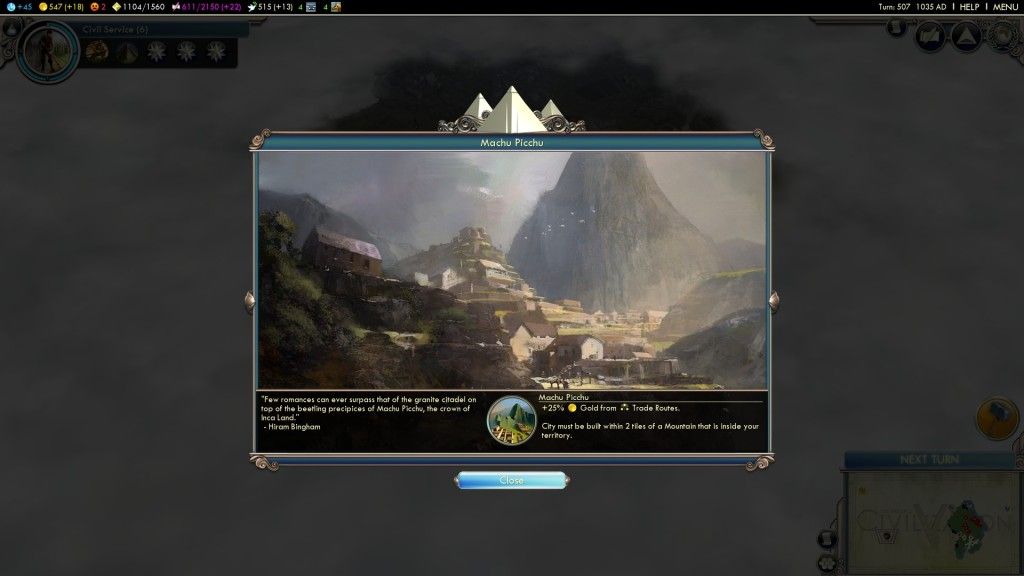 Local relation, too, continued to grow in their respective patterns. Relations with our Hunnic neighbors in the north, carefully nutured by Darius, continued to warm. We traded horses and iron for gold and furs. Our peoples grew close. In the south, though, the Ottomans chose the opposite path continually antagonizing and provoking the citizens of Pyrestone. It was only a matter of time before the situation came to a head. In 1285AD, a bargain was struck and, with the permission of Lord Darius, Zovo and his Immortals marched south against the Ottomans again. This time, they marched with renewed vengeance and were backed by our Allied Hunnic forces. 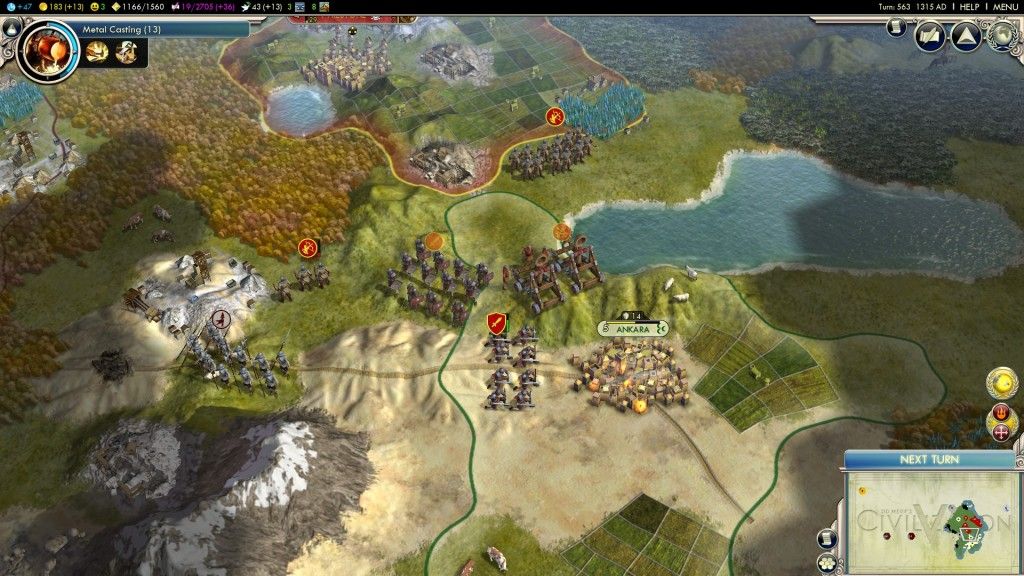 The Ottomans stood little chance against the combined might of our forces coupled with the fanatic zeal of Zovo's Immortals. The Huns made a show of pillaging and burning smaller settlements while our seige engines moved against the larger cities. In 1362AD, Istanbul fell. 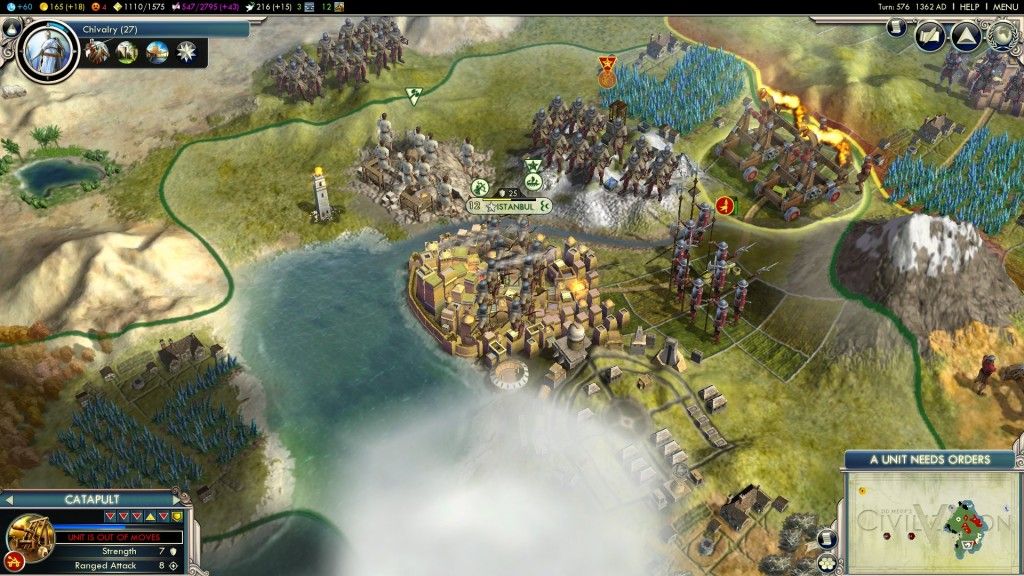 Suleiman and his court fled the city sliding past our seige line by cover of night and racing northeast, first to Bursa and then when those walls were breached, they fled again to a small coastal settlement known as Samsun. Here, the Ottoman empire would manage a period of respite as our armies became necessary elsewhere. There is a basic principle that treachery begets treachery. Though I cannot speak for certain on the cause of these occurances, I can speculate. 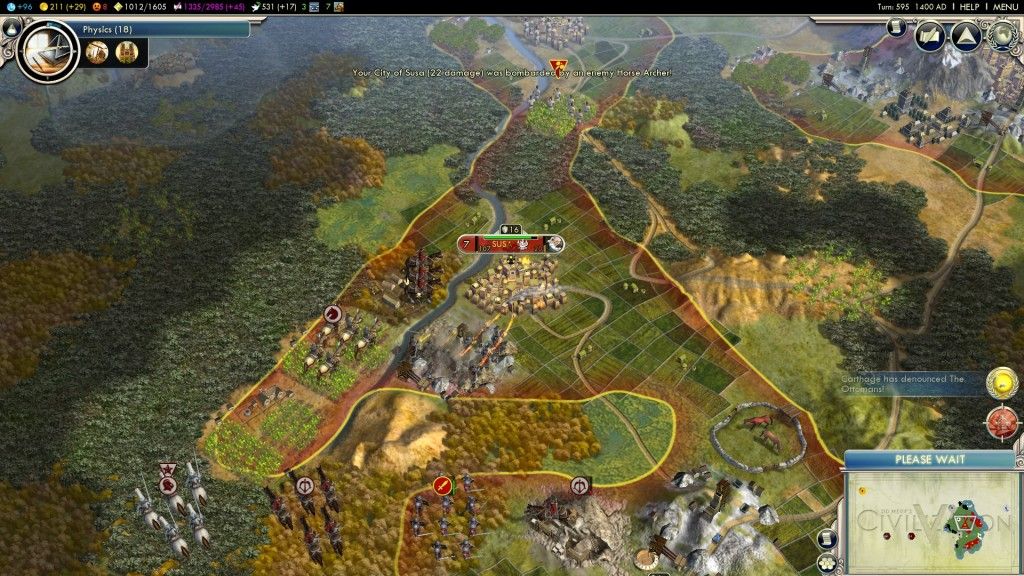 In 1400AD, while our forces were encamped outside the Ottoman city of Samsun, our Hunnic allies turned upon us. Was this my Lord Darius' work to again make the prophet look foolish? Was it Zovo's careful manipulation of the Huns themselves convincing them to strike upon the guardian city of Susa; both removing the nuisance looking over his shoulder and justifying a future campaign against our northern neighbors? Or was it just the whimsical shifting of attitudes by an the Hun's insan leadership? I cannot say for certain. Whatever the case, by the time our forces had pulled out of the Ottoman's meager territories; the walls of Pyrestone were badly damaged. And before the Huns could be chased from our lands, Susa was greatly reduced. My Lord Darius was furious, having been stabbed in the back by an old friend he wasted no time in responding. Immediately he called forth two great generals of the southern campaign and sent them to fortify the Susain Riverlands while the armys rested and restocked. Then, fresh off their victories against the Ottomans, our armies stormed through the Hunnic settlements of New Sarai and Lahore, reducing them nearly to the ground and capturing the resources. They then continued their march across the great wilderness to the outlying Hunnic cities in the northwest. 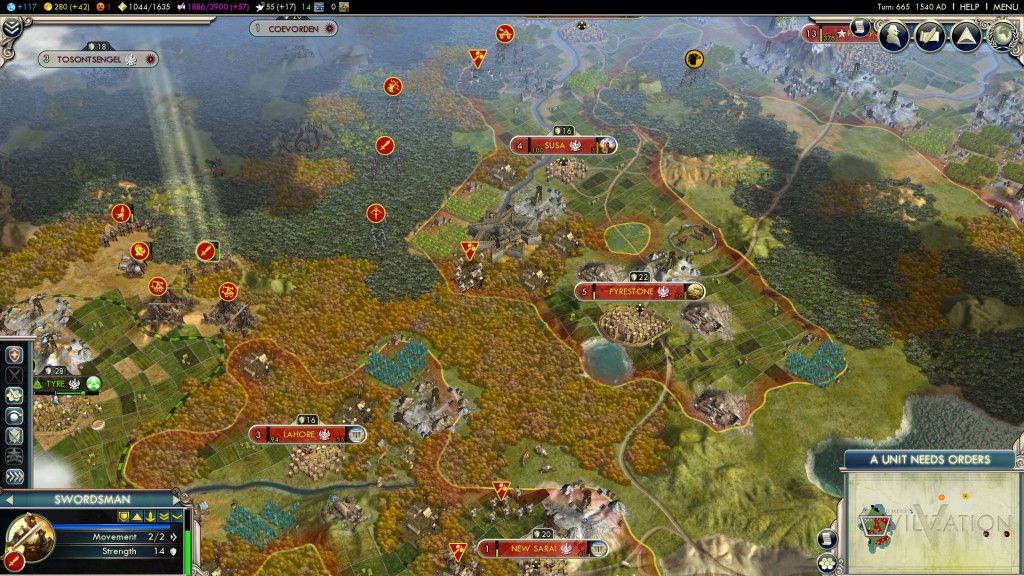 There was no negotiation, no treaties, no truce, and no mercy. Tosontsengel and Coevorden were sacked and burned to ash, our troops marching through the blaze, and mud, and blood without so much as a second glance. The march to Shubat-Enul was a difficult one. The Huns exploited the forests and hills and picked off many soldiers on the approach. The actual seige of the city was a near defeat. 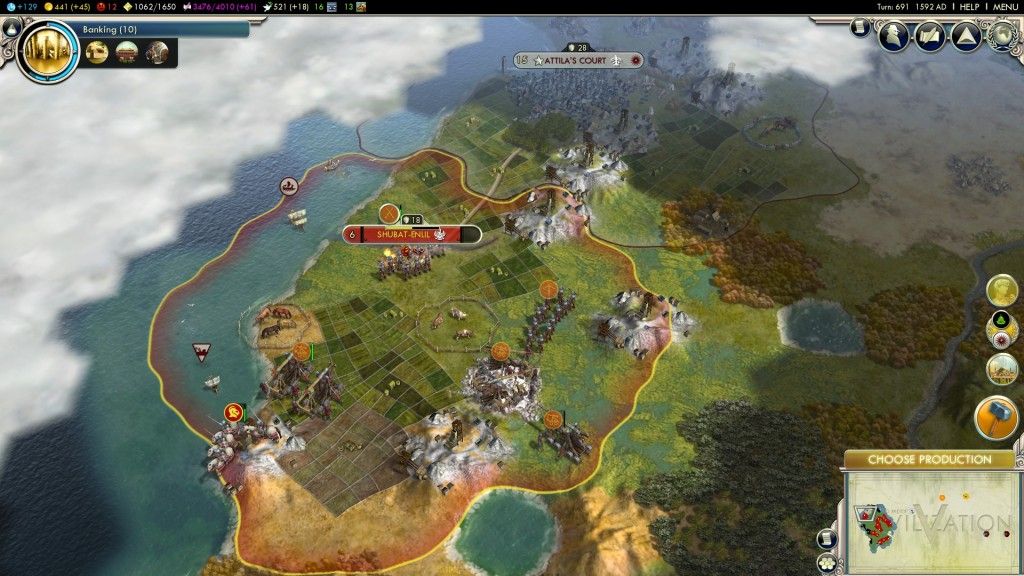 It seemed the fire in my Lord Darius' heart was dwindling. He loved his people, greatly, and could not stand to watch them suffer and die at his hand. It began to look as though the Huns might benefit from the same last moment respite enjoyed by the Ottomans. Our armies began to pull back. Then the unexpected occured. The various city-states who share this land, long passive, spoke up. It appears that for many centuries the Huns have been terrorizing them, demanding tribute, pillaging their lands and holdings. They saw the Huns now on the verge of utter defeat and could not bear to see Darius withdraw. 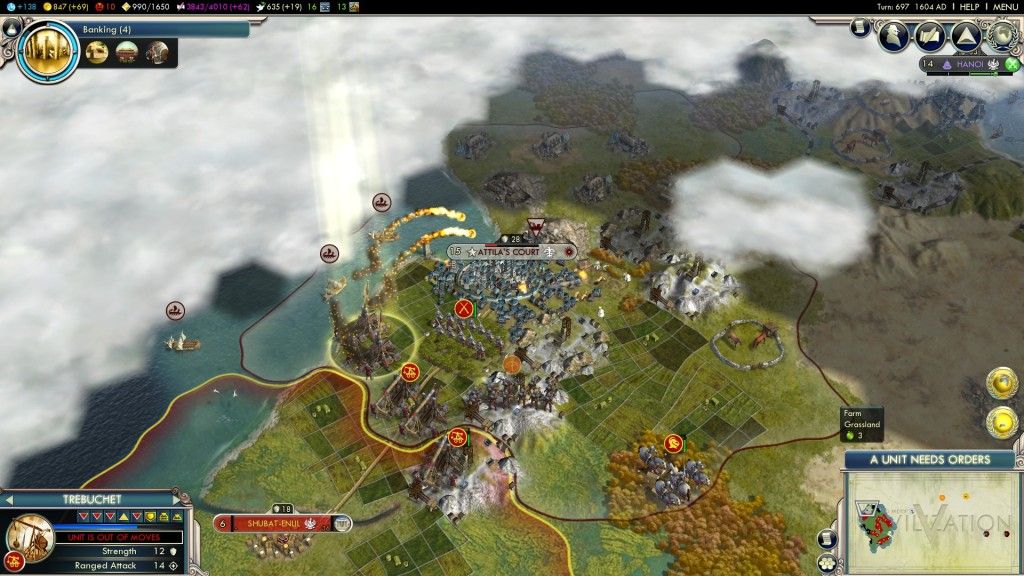 Tyre, Kathmandu, and Hanoi sent money and resources to fund and outfit the army. Sidon and Kuala-Lumpar sent troops and seige engines. My Lord Darius and Zovo both smiled at this prospect, and this reputation they had gained as the protector of these small states. The march on Attila's Court was renewed and in the year 1604, but for a handful of fishing boats, the Hunnic civilization was no more. After the fall of the Huns the nation entered a period of regrowth. Many had perished in the brutal campaign, cities captured needed to be brought to heel, and the economy worsened every year. 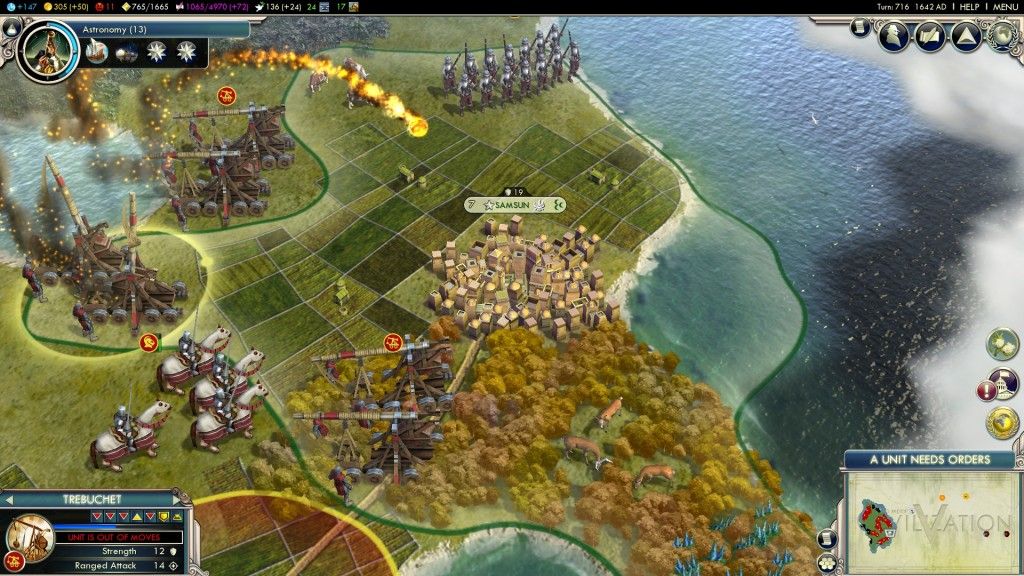 Still, though, one enemy remained. The Ottoman city of Samsun. After the trials of the Hunninc campaign, the seige of Samsun was hardly noteworthy but for the fact that it closed a chapter in our nations history. 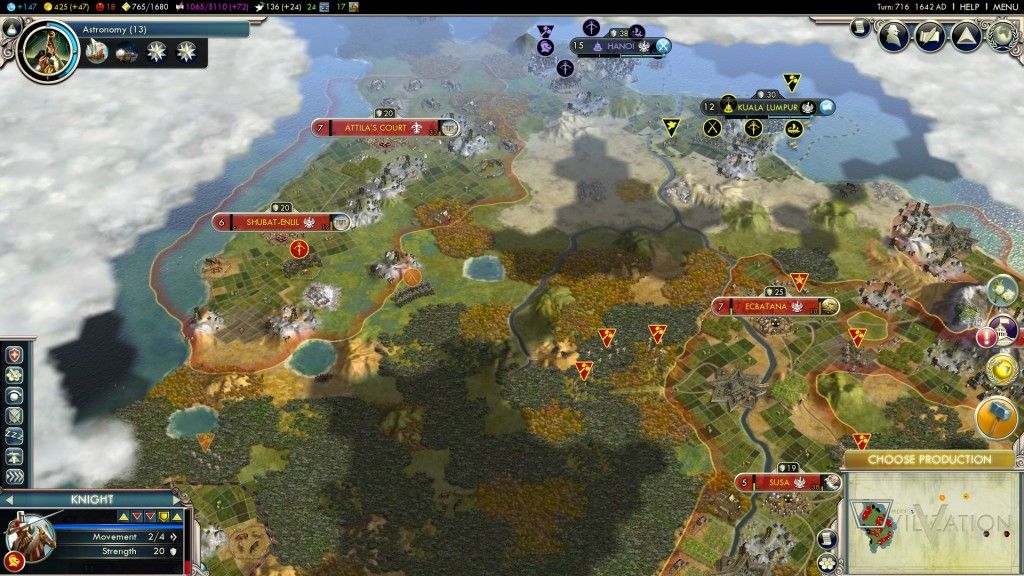 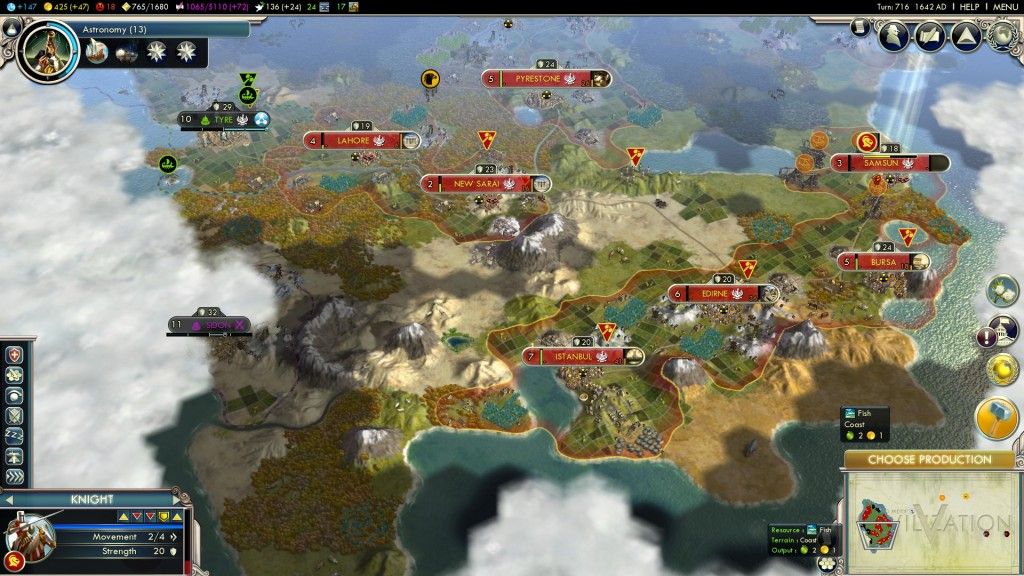 In 1642AD, our Empire, the Persian Empire became the sole imperial force on our island continent. In one final closing act, Zovo moved his religious base to the former Ottoman capital of Istanbul and renamed it Zovostan. 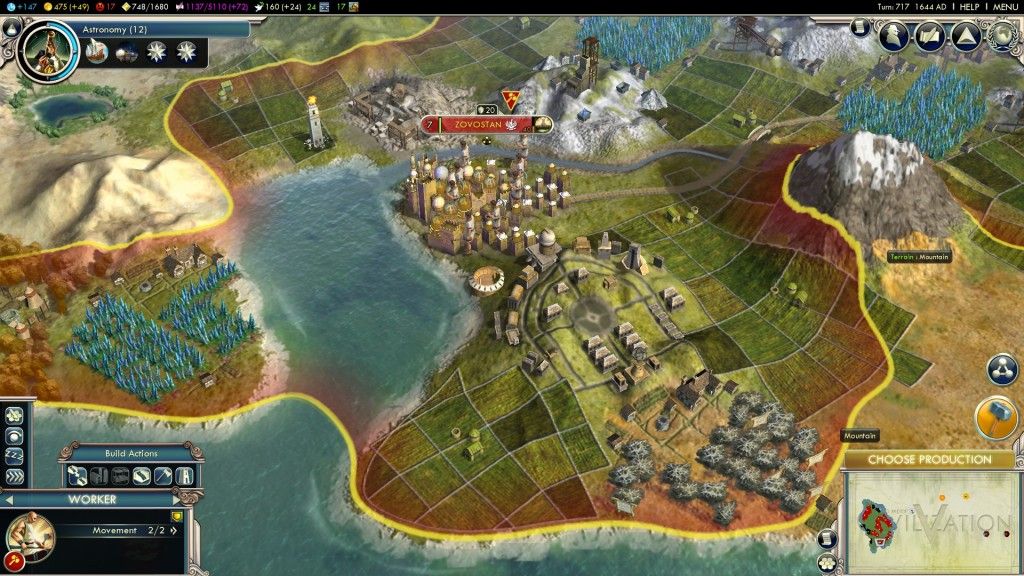 |
|
|
|
Post by Kaez on Sept 11, 2013 9:41:09 GMT -5
Man, I loved the hell out of this. It's a shame you seemed to lose some steam as you went along with it, because particularly the first half is just absolutely stellar.
|
|
|
|
Post by ASGetty ((Zovo)) on Sept 11, 2013 13:53:38 GMT -5
Man, I loved the hell out of this. It's a shame you seemed to lose some steam as you went along with it, because particularly the first half is just absolutely stellar. It's funny the stuff that you've forgotten you wrote. If I recall correctly, I ended it so abruptly because I sort of got wrapped into that "One More Turn" mentality and basically forgot I was supposed to be taking screenshots. After I conquered the Ottomans I basically just kept going and wasn't really keeping track of stuff so I opted to just end it at what I hinted at was the conclusion of a sort of vengeance arc for the Zovo character; conquering the people who had enslaved him and his kind. I can see what you're saying about losing steam though. I even dropped the formatting near the end. I think I was just realizing I needed to wrap up the story but I wanted to get back to the game, so I just banged it out quick so i didn't lose too much momentum. That's one thing about Civ V, though, if you stop in the middle of a game at let it sit too long it becomes really hard for me to come back to it and pick up where I left off. Overnight is about as long as I can let it sit without losing context. I've actually got ideas brewing for another one of these. |
|
|
|
Post by Kaez on Sept 11, 2013 14:06:48 GMT -5
Man, I loved the hell out of this. It's a shame you seemed to lose some steam as you went along with it, because particularly the first half is just absolutely stellar. It's funny the stuff that you've forgotten you wrote. If I recall correctly, I ended it so abruptly because I sort of got wrapped into that "One More Turn" mentality and basically forgot I was supposed to be taking screenshots. After I conquered the Ottomans I basically just kept going and wasn't really keeping track of stuff so I opted to just end it at what I hinted at was the conclusion of a sort of vengeance arc for the Zovo character; conquering the people who had enslaved him and his kind. I can see what you're saying about losing steam though. I even dropped the formatting near the end. I think I was just realizing I needed to wrap up the story but I wanted to get back to the game, so I just banged it out quick so i didn't lose too much momentum. That's one thing about Civ V, though, if you stop in the middle of a game at let it sit too long it becomes really hard for me to come back to it and pick up where I left off. Overnight is about as long as I can let it sit without losing context. I've actually got ideas brewing for another one of these. Yeah, really, a proper game of Civ V is best played in a massive, single day binge. It's not easy to pick up a game you've set down. I've got a game with America going right now that I think I'm going to turn into one of these, so I read the ones on AWR for inspiration (and they were quite good inspiration, too). I'm just not sure how much I want to take it in the IC/roleplayed direction and how much I want to be kind of frank about the OOC aspects of decision making and combat and stuff. I'm going to try and strike a nice balance between the two. I've got about twenty screenshots so far and I'm only at the end of the Classical Era -- also don't want to make the writing:screenshot ratio too wonky. I hope you get another one of these going. I'll probably have my first post up tonight, or at the latest tomorrow. Maybe that'll serve as inspiration. I loved going back and reading these. |
|
|
|
Post by ASGetty ((Zovo)) on Sept 11, 2013 14:23:48 GMT -5
It's funny the stuff that you've forgotten you wrote. If I recall correctly, I ended it so abruptly because I sort of got wrapped into that "One More Turn" mentality and basically forgot I was supposed to be taking screenshots. After I conquered the Ottomans I basically just kept going and wasn't really keeping track of stuff so I opted to just end it at what I hinted at was the conclusion of a sort of vengeance arc for the Zovo character; conquering the people who had enslaved him and his kind. I can see what you're saying about losing steam though. I even dropped the formatting near the end. I think I was just realizing I needed to wrap up the story but I wanted to get back to the game, so I just banged it out quick so i didn't lose too much momentum. That's one thing about Civ V, though, if you stop in the middle of a game at let it sit too long it becomes really hard for me to come back to it and pick up where I left off. Overnight is about as long as I can let it sit without losing context. I've actually got ideas brewing for another one of these. Yeah, really, a proper game of Civ V is best played in a massive, single day binge. It's not easy to pick up a game you've set down. I've got a game with America going right now that I think I'm going to turn into one of these, so I read the ones on AWR for inspiration (and they were quite good inspiration, too). I'm just not sure how much I want to take it in the IC/roleplayed direction and how much I want to be kind of frank about the OOC aspects of decision making and combat and stuff. I'm going to try and strike a nice balance between the two. I've got about twenty screenshots so far and I'm only at the end of the Classical Era -- also don't want to make the writing:screenshot ratio too wonky. I hope you get another one of these going. I'll probably have my first post up tonight, or at the latest tomorrow. Maybe that'll serve as inspiration. I loved going back and reading these. I think I'll probably get the game started Saturday. I'm going to build off of a piece of fiction I've been working on on-and-off for a while (Ref's seen it). It's a sort of creation myth which could serve as a good prequel to a Civilization RP. I say prequel because you'll probably get the game story with references to the myth before you get to see the myth itself in completed form. My only beef with doing an RP style is that your ruler is the head of the Civilization for eons; so twisting that into an RP becomes difficult. You either have to come up with an excuse for it, or just discount it completely. I'll be taking the latter approach and renaming everything I can to fit the story. |
|
|
|
Post by Kaez on Sept 11, 2013 19:33:35 GMT -5
Hey Zovo, what do you think of the prospect of reading a story straight from an imgur album? imgur.com/a/wZGVJLike that, but with words between the pictures. Or, better yet, press the 'view full screen' button. Think that'd be immersive enough to tell a story with? Because copying over 65 images just for -the ancient era- is going to be a bitch and a half. |
|
|
|
Post by ASGetty ((Zovo)) on Sept 11, 2013 19:48:07 GMT -5
Hey Zovo, what do you think of the prospect of reading a story straight from an imgur album? imgur.com/a/wZGVJLike that, but with words between the pictures. Or, better yet, press the 'view full screen' button. Think that'd be immersive enough to tell a story with? Because copying over 65 images just for -the ancient era- is going to be a bitch and a half. Hard to say. Put in some text so I can see it in action. |
|
|
|
Post by Kaez on Sept 11, 2013 20:00:27 GMT -5
Hey Zovo, what do you think of the prospect of reading a story straight from an imgur album? imgur.com/a/wZGVJLike that, but with words between the pictures. Or, better yet, press the 'view full screen' button. Think that'd be immersive enough to tell a story with? Because copying over 65 images just for -the ancient era- is going to be a bitch and a half. Hard to say. Put in some text so I can see it in action. Added a quote from Immortality in Stone to see how it'd look. Take a look at that. Makes the full screen view require a mouseover for the text and kills most of the formatting. Sigh. Might have to go on a copying-and-pasting binge. |
|
|
|
Post by Kaez on Sept 11, 2013 20:03:14 GMT -5
Ooooooooooooooo, changed the format. I think this one actually works.
|
|
|
|
Post by ASGetty ((Zovo)) on Sept 11, 2013 20:04:49 GMT -5
Yeah, I think that'd be alright.
|
|

























